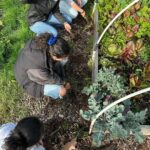
Dive deep into the world of composting, native plants and pollinators, veggie gardens, aquaponics, and more with a guided tour of our Teaching Gardens and Demonstration Site. The tour offers a look into real life applications of sustainability practices and encourages discussion, critical thinking and reflection.
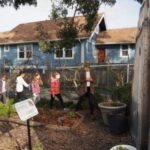
Learn the basics of successful composting, the various techniques used to compost, as well as the importance of soil to our society and the earth itself. This workshop can include a hands-on component to determine the best composting system for your class or school, or can involve troubleshooting an existing compost system.
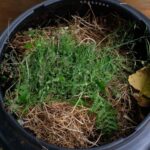
Join us for an eye-opening microscope-based workshop, where we will examine soil on the smallest scales and observe the multitude of microbes it contains! Students will be introduced to the dynamic ecology of the soil nutrient cycle, and discuss ways we can support the vital biodiversity under our feet.
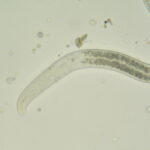
What is citizen science? How can we connect with the biodiversity in our neighborhoods? In this workshop, students will conduct a biodiversity survey near their school, and learn how to publish the data they record using the iNaturalist platform. We will discuss the importance of citizen science as a tool for deepening our understanding of the world around us, as well as connecting with other nature enthusiasts and contributing to scientific research and stewardship.
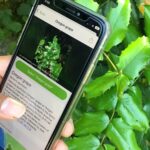
Vermicomposting is an ecosystem and composting system all in one! Alongside an intro to composting, this workshop will introduce students to the anatomy and reproduction of red wriggler worms, and the many ways to create and maintain an active composting worm bin. Dive deep into the world of worms and keep the worm bin for your classroom!
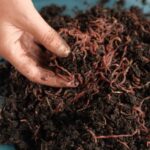
This hands-on workshop dives deeper into the compost cycle while students get their hands dirty harvesting their worm bin and finding lots of other critters along the way. End by adding your compost to the garden and discovering its benefits and/or by starting the worm bin again!
*Note: Harvest workshops should be booked around 6 months after setting up the worm bin. The contents of the bin should look like soil and be a small particle size with little newspaper.
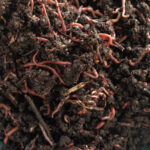
Discover the evolution of the seed, break open a seed to explore it’s anatomy and experience seed adaptations in real time. This 1 hour workshop is a combination of hands on activities, science experiments as well as a presentation packed with regionally specific information, fun facts and more. Students will walk away with a new understanding and appreciation of the amazing roles seeds play in our ecosystems.

How can we save seeds, and why do we do it? This extremely hands on workshop provides students an opportunity to process seeds from a variety of plants, experiment with different seed saving techniques while learning about the importance of seed saving for our futures and food systems. Participants will end by learning to test germination rates, package and store dry seeds and finish the workshop with packaged seeds to plant next spring.
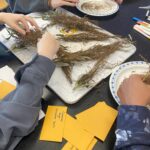
This workshop is designed to help you get your garden ready for winter. Our gardens work hard producing all summer, and winter is time to rest and replenish some of those nutrients! Starting with a little lesson on winter garden care, this workshop quickly moves outside to your school garden and gets students involved in the winterization of your garden through mulching, cover cropping and more. Please note: this workshop will require prior communication and planning to ensure the materials and site is ready for our visit.
